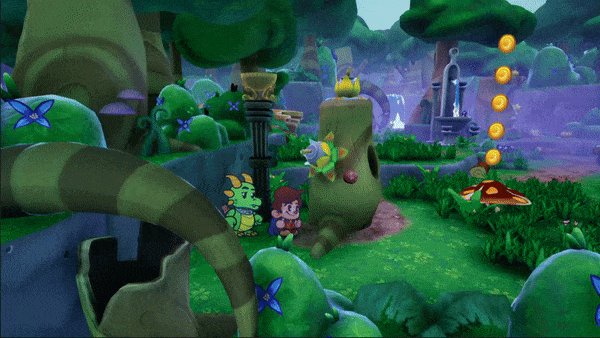The following work is from the video game Escape from Ever After, a startup indie project developed in Unreal Engine. I served as the game's Creative Director, Level Designer, Gameplay Designer, Writer, Composer, and more.

Escape from Ever After is a recipient
of an Epic MegaGrant
Reviewed Overwhelmingly Positive!

Puzzle Design
In Escape from Ever After, I was responsible for designing and implementing a variety of environmental puzzles that challenged players’ spatial reasoning, observation skills, and mastery over their abilities. My work focused on creating satisfying “aha” moments that integrated naturally with the level structure and pacing, used mainly to break up combat and encourage exploration.
My puzzle design goals in this project were to:
Teach mechanics through player discovery, not tutorials
Integrate puzzles with the world and story
Use visual language to subtly guide player attention
Layer complexity so each puzzle is built on earlier knowledge
Scaffolding
When introducing new mechanics, I rely on scaffolding — starting with simple building blocks and layering complexity gradually, one element at a time.
See how the following building blocks are layered to teach the player to work with their fire abilities:
These building blocks build on the player's existing knowledge, adding complexity without discarding what they've already learned. This allows for deeper puzzle solving that still feels organic.
Some of these concepts are even used in battle. For example, fire can be spread from one enemy to another. This is only discovered through intuitive experimentation:

Full Puzzle Examples
The videos below show two puzzles from the same level—one near the beginning, and one at the end. They highlight how a new mechanic is introduced gently, then gradually ramps up by the level’s finale.







